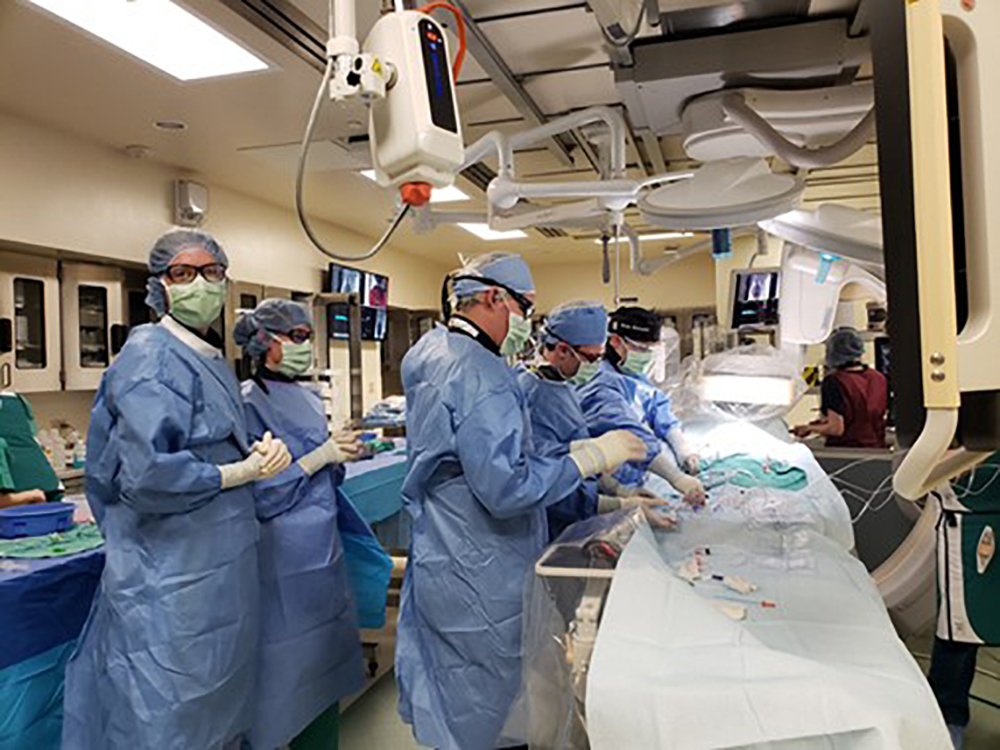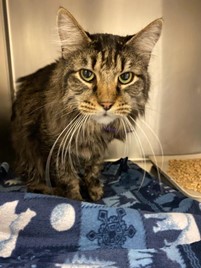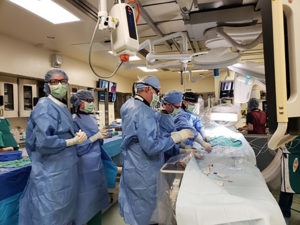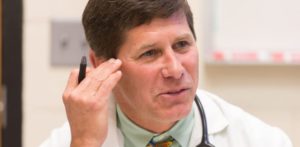
Groundbreaking Heart Surgery in Dogs Offers Opportunities for Advancement in Human Surgery
In 2018, Colorado State University opened the first of its kind hybrid cardiac operating room in veterinary medicine. This advanced technology allows for heart interventions that have never before been possible in pets. In early 2019, Dr. Scansen performed the first ever transcatheter aortic valve replacement in a dog, Sabbath, with the help of UCHealth cardiologists Drs. Strote and Oldemeyer. The procedure was a success, and Sabbath has fully recovered back home in California.
Diseases of heart valves are very common in dogs and are also an important condition in humans. The ability to replace the aortic valve by catheterization was not possible in people 20 years ago but now is performed in over 100,000 patients annually. Similarly, few options existed for dogs with aortic valve disease in the past, but with translational medicine and collaborations between veterinarians and physicians, these new therapies can be adapted and used to care for animals.
Further efforts to advance minimally-invasive valve therapies are underway at CSU, with the goal to develop the next generation of devices to treat valvular heart disease in both dogs and humans. Though the size of the hearts may differ, many valvular heart conditions are similar in humans and animals creating a perfect opportunity for CSU and UCHealth to team up to advance medicine and treatment in both ourselves and our pets. The collaborators also see a future where advances are made easier by their teamwork. With the burgeoning field of veterinary cardiac intervention, new advances in technology, disease pathology, and prevention are likely to translate to improvements in human medicine.
Three key benefits of the findings:
- Proves revolutionary new procedures in veterinary cardiac intervention are feasible and successfully improve quality of life of pets.
- Shows the benefits of human and veterinary collaboration to use advances and technology from human medicine to provide groundbreaking treatments for veterinary patients.
- Emphasizes that naturally-occurring diseases in our pets mimic human diseases and opens the door to opportunities to improve treatments and a better understanding of disease in all affected species.
“Collaboration is what drives medical advances for both animals and people. At CSU, we are fortunate to work with outstanding local physicians and have industry support to develop, optimize, and deliver the next great therapies for heart disease.”
– Dr. Scansen
Investigators:
Brian A Scansen, DVM, MS, DACVIM
Justin A Strote, MD
Bradley Oldemeyer, MD
Website links:
- Press release: https://koaa.com/news/covering-colorado/2019/03/01/colorado-state-veterinarian-successfully-replace-dogs-heart-valve-using-catheter/#:~:text=FORT%20COLLINS%20%E2%80%93%20A%207%2Dyear,valve%20replacement%20in%20a%20dog.
- Press release: https://www.uchealth.org/today/saving-animals-while-advancing-human-medicine/
- Press release: https://cvmbs.source.colostate.edu/csu-veterinary-team-performs-first-ever-heart-valve-procedure-on-schnauzer/
- Press release: https://cvmbs.source.colostate.edu/leading-with-heart-cardiology-operating-suite-a-first-in-veterinary-medicine/





